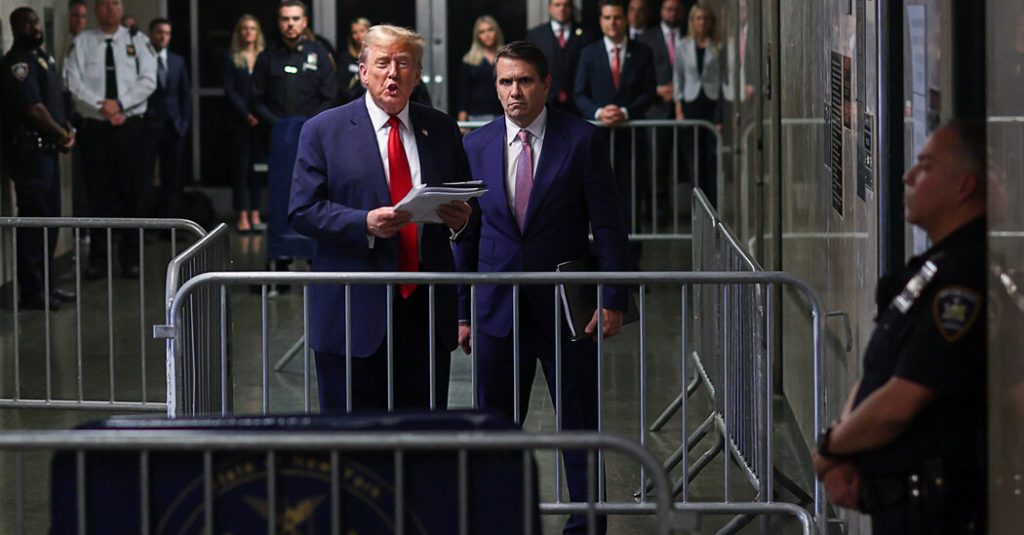The evidence against Donald J. Trump has mounted over the course of his monthlong criminal trial. With recordings, phone calls, text messages, emails, and witness testimonies, the prosecution has built a case alleging that Trump orchestrated a conspiracy to suppress sex scandals during the 2016 election and subsequently sought to bury a porn star’s story. The 19th witness, Michael D. Cohen, is crucial to linking Trump directly to the 34 business records he is charged with falsifying, though Trump’s legal team has attempted to undermine Cohen’s credibility by highlighting his past criminal record.
As the trial enters its final stage, legal experts believe the case remains the prosecution’s to lose due to the substantial circumstantial evidence and favorable laws underpinning the charges. While the jury does not have to believe all of Cohen’s testimony, it is crucial that they believe enough of it to warrant a conviction. Cohen testified about paying off Stormy Daniels on Trump’s behalf, and how reimbursements were disguised as legal expenses to keep the cover-up alive. The issue of whether Trump caused his company to file false records and knowingly aided the crime will be key to the case.
The fate of the trial largely depends on the judge’s interpretation of the legalities surrounding the charges. Prosecutors have argued that Trump’s involvement in concealing sex scandals and the subsequent falsification of records warrant a conviction. However, the defense is likely to portray the alleged crimes as typical political tactics and argue that Trump was not involved in the day-to-day handling of the documents at the heart of the case. Nevertheless, testimonies and documentary evidence suggest Trump was detail-oriented when it came to financial matters.
Cohen’s testimony has been central to linking Trump to the false records, as he recounted his involvement in the payoffs to silence Stormy Daniels and the subsequent cover-up. Cross-examination by Trump’s lawyers attempted to cast doubt on Cohen’s credibility by highlighting past lies and inconsistencies in his testimony. Despite this, Cohen remained composed and stood by his testimony, insisting that he had spoken to Trump about the payments in question. The prosecution hopes that the jury will believe Cohen’s account and find Trump guilty of the falsifying business records charges.
The trial has shed light on the complex web of relationships and transactions that allegedly led to the falsification of records to cover up sex scandals during the 2016 election. With witness testimonies, recordings, and other evidence presented in court, the jury will ultimately decide Trump’s fate. The legal experts believe that if enough jurors believe the government’s evidence and find Trump guilty of causing false records to be filed, a conviction is warranted, regardless of their opinions on Cohen’s credibility or Trump’s involvement in the day-to-day operations of his company. The trial’s outcome will be determined by how the jury weighs the evidence presented by both sides.


